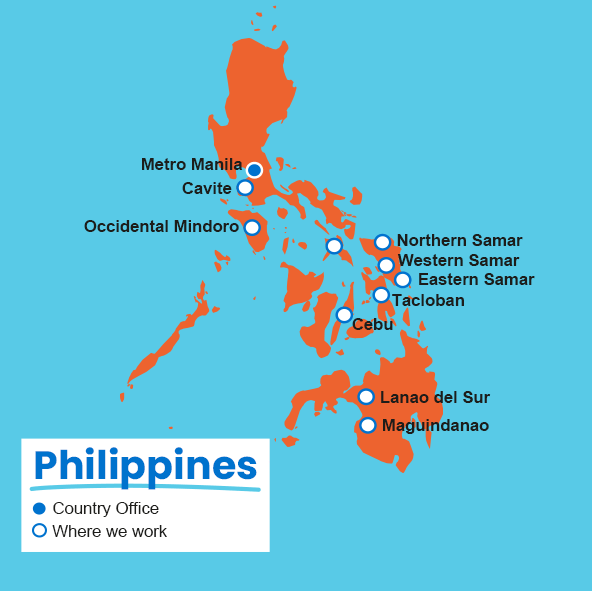Edciel: Empowering youth to drive climate action online
Following Plan International Philippines' recent webinar on climate advocacy and the digital landscape, 16 year old Youth Reporter, Edciel, writes about the …
We are Plan International. Working in the Philippines since 1961, we ensure children and girls realize their rights to education, protection, health care, and high quality of life. We strive for a just world, working together with children, young people, our supporters, and partners to advance children’s rights and equality for girls.
Our Country Office is located in Manila, with programme and project areas in North Samar, West Samar, East Samar, Occidental Mindoro, Metro Manila, and Maguindanao del Norte.
We implement programmes that focus on:
4/F Bloomingdale Building, 205 Salcedo Street, Legaspi Village, Makati
Follow us:
